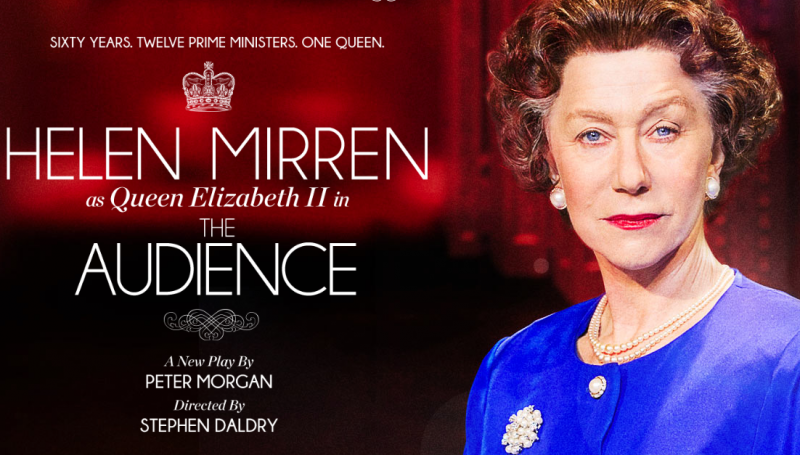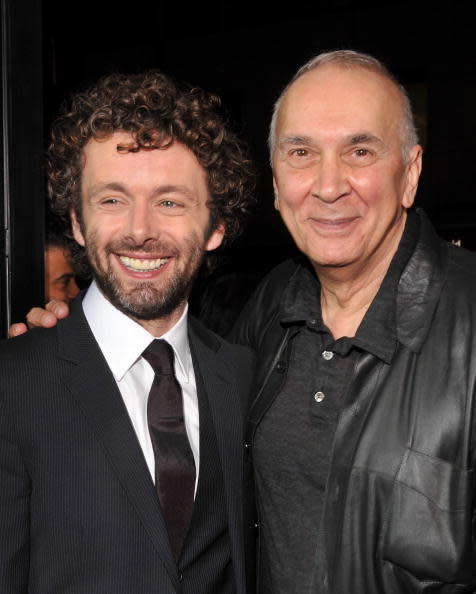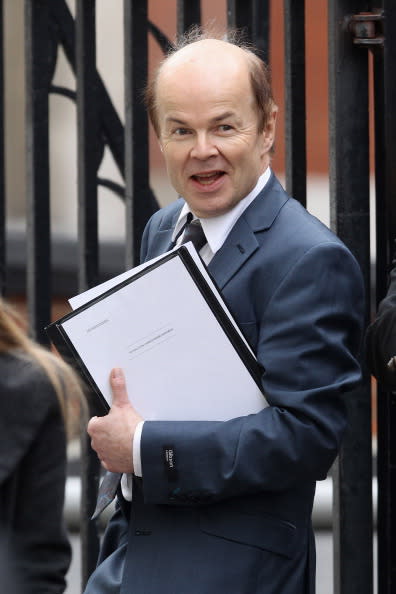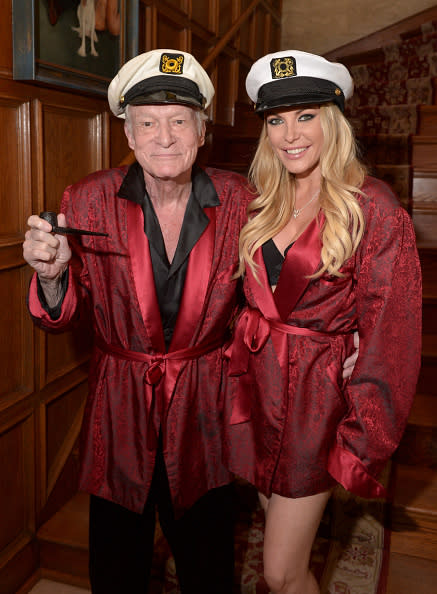‘Rush’, ‘The Audience’ Author Peter Morgan On Truth In Storytelling: Conversations With Jeremy Gerard

EXCLUSIVE: Who owns history? In the run-up to the Oscars, the critiques playing out in the press over the “accuracy” of events portrayed in Selma, American Sniper and The Imitation Game have never had a more powerful purchase on the public conversation.

Few contemporary writers have tangled with the issue as consistently — and entertainingly — as two-time Oscar nominee Peter Morgan. He might recreate the days-long encounter between a British interlocutor and a paranoid U.S. President, as he did first onstage and then in film with Frost/Nixon. Slice through the emotional tensions in a legendary Formula One racing rivalry, as he did in Rush. Or imagine the private conversations between the Queen of England and a succession of Prime Ministers, as he does in The Audience, the hit West End play starring Helen Mirren that is in rehearsal for its upcoming Broadway bow.
Morgan is also in the thick of making The Crown for Netflix, which, like The Audience, is being directed by Stephen Daldry, an Oscar nominee for Billy Elliot, The Hours and The Reader.
Continuing my Conversations With… series focusing on artists who maintain connections in theater, film and television, I turned to Morgan first on the subject of history and the writer’s responsibility. We talked over coffee (tea, for him) in a Broadway café during a quick trip to check in on rehearsals.
JEREMY GERARD: Let’s talk about “historical accuracy.”
PETER MORGAN: By the way, is there not too much biographical drama being made at the moment? I’m wondering whether it’s slightly tipped into almost parody — and I say that, as it were, as an offender.
‘To what degree are historians chroniclers of the truth and to what degree are they just novelists, frankly?’
JEREMY GERARD: As a key practitioner of the art…

PETER MORGAN:
I have a new project and I don’t even have a glimmer of hope that it could survive. It’s about history and it’s relevant to me because it’s really about what is truth? What is accuracy? Who tells history and to what degree are historians chroniclers of the truth and to what degree are they just novelists, frankly?
JEREMY GERARD: Well, it couldn’t be a timelier issue right now, with the talk about Selma and its depiction of President Johnson in his dealings with Martin Luther King.
PETER MORGAN: I can’t relax when I’m watching a biographical drama, because it’s so close to what it is that I do that I just long for more fiction — so that I can switch off.
JEREMY GERARD: With Frost/Nixon you obviously did more than transcribe the tapes.

PETER MORGAN:
I went to see everybody involved with the interviews and had conversations just like we’re talking now. The disparity and perspective on what they’d all seen — the Frost camp thought they’d won, the Nixon camp thought that they’d given away nothing. I felt the only way to tell the story is to have narrators from both, so that we have the perspective of recollections and memories. Then I took a decision that I still have mixed feelings about, which was I gave Frost the victory. In the end I have to take a position on this. Part of that also involved me saying to David Frost, “I’ve got to paint a portrait of you as as I see you. I mean you no harm and please don’t judge me based on the words that you read. Judge me based on how people near and dear to you respond to you a month after it’s been released.”
And David, when he read the play, became my sworn enemy. It was just a portrait of himself that he found unacceptable. It wasn’t until the play became a success, and then the film became a success, that he courted my friendship again. But at that point, I think he’d said a few too many things that I couldn’t come back from.
There are so many projects that I’ve written and had to abort, because either I felt too distressed by what I was doing to the people who I was writing about, or they couldn’t cope with it because their view of themselves was so far removed from reality.
JEREMY GERARD: It’s so much easier when they’re dead.
PETER MORGAN: So much easier when they’re dead. And yet, so much less exciting. Working with (Formula One champion) Niki Lauda on Rush was a really rewarding experience.

JEREMY GERARD: And you’ve just had a brilliant reception for the TV miniseries
The Lost Honour Of Christopher Jefferies, with its sympathetic depiction of a peculiar man accused of murdering Joanna Yeates and consequently shredded by the tabloid press. This is what Ben Lawrence said in The Telegraph: “Morgan is not making a crime thriller. He is doing something far more important: The Lost Honour of Christopher Jefferies is a sensitive, open-hearted plea to tolerate those who choose to live outside the narrow confines of societal norms. It’s an antidote to all that media venom.” That’s quite a tribute.
PETER MORGAN: I’m really, really proud of that one, which is all about the press regulation of freedom. This man is wrongly accused of murder…it’s the perfect companion piece to Nick Broomfield’s new documentary The Grim Sleeper, about a man committing untold murders in South Central Los Angeles without anybody noticing it. Lost Honour is about a 29-year-old blonde girl who was murdered in England and the whole country ground to a halt. This woman had a really great life stretching out in front of her. She was a university-educated landscape architect, attractive though not conspicuously beautiful. And she was murdered, her body was found and they arrested her landlord who was a man with a very unfortunate haircut. He had let himself go in retirement and was an awkward, prickly, highly educated bachelor. The newspapers just tore this man apart, “He did it, that’s it. Weirdo, Peeping Tom,” and the country just was so incensed, because of this darling of England whom he murdered.
And of course it wasn’t him. So he did this extraordinary thing. He cut off all his hair and he took the newspapers to court and won considerable damages. And he’s now become a leading spokesman and advocate and very the public face of the Hacked Off campaign, which is about wanting to increase press accountability. Of course I thought, What a great story.
JEREMY GERARD: Talk about “ripped from the headlines”…
PETER MORGAN: There was no financial incentive to writing it, there was no career incentive to writing it. I just stopped everything, rang this man up and I said, “Please trust me. You know, you probably won’t like what I write about you” — because nobody ever likes anything, we all have visions of ourselves which are Photoshopped — “and please trust that I have your best interest at heart.”
JEREMY GERARD: Let’s talk about The Audience, in which real people — Helen Mirren’s Queen Elizabeth and the various Prime Ministers — had real conversations which you know absolutely nothing about.
‘I don’t know if the Queen’s anything like the version of her that I write. She’s so unknowable. I’m only guessing.’
PETER MORGAN: These meetings that the Queen has with her Prime Minister every week, everybody knows they happen and nobody knows what’s said. I thought, Great, and then you’ve got to piece it together — well, I know that this Prime Minister at this point in his term was feeling this and if I were to set The Audience at that point, it’s reasonable to assume he would be euphoric or defeated or crushed or paranoid. And then, Well, I know what she was doing in her life then and, Oh, that’s an interesting intersect. Stephen Daldry sort of weaved it together.
JEREMY GERARD: How does it feel to pry open the conscience of the Queen?
PETER MORGAN: Oh, God I have no idea! I don’t know if she’s anything like the version of her that I write. She’s so unknowable. I’m only guessing.
JEREMY GERARD: I suppose that’s liberating?

PETER MORGAN:
Yeah, it is actually. You know there’s not going to be any comeback. As long as I behave like a responsible adult, I can have shots at her and I can be kind to her on my own terms. I wrote a draft of Playboy for Warner Brothers and it was impossible to really be independent of Hugh Hefner. In the end, Hugh Hefner was unable to take the backseat required to be able to write something about him that I felt I could do.
JEREMY GERARD: Has this happened on other projects?
PETER MORGAN: I like to tell a story in a clean way. I write as much as I can with open cards, which is tough actually. It was the big argument I had on Tinker, Tailor, Soldier, Spy. I wrote the first script and I said to John le Carré, “I want to take the fog out of this, because I think that the emotional truth behind what’s going on with all these characters is actually rather interesting.” He and I couldn’t agree on that. He felt that the world is subterfuge and espionage, and needs to be so broken up and refracted that you don’t know who is who and what they’re thinking.
JEREMY GERARD: And so you parted ways?
PETER MORGAN: That’s entirely valid but I find it alienating and unsatisfying. So we agreed to totally disagree. He was not interested in eliciting emotion in the audience, while I was and I thought transparency was required. You need to invest in Smiley’s marriage; you need to invest in his feeling of cuckoldry to really understand that betrayal.
JEREMY GERARD: He wasn’t interested?
PETER MORGAN: Not interested.
JEREMY GERARD: Will you adapt The Audience for film?
PETER MORGAN: No. But I’m creating a big television show, The Crown, which was inspired by it, for Netflix. We start shooting this year and I’ve written the first 10 episodes. It’s the story of the two houses, Downing Street and Buckingham Palace, and the intersection between the two through this weekly meeting. But in essence, it’s about that family of hers, starting in 1947 on the eve of her wedding. At the heart of it I suppose it’s a story of marriage. and how difficult it must be to be a young woman and how much of you is the Queen and how much of you is Elizabeth Windsor and to what degree do the two things blend and blur into one another?
JEREMY GERARD: There’s that fog you like so much. “A truth like fiction…”
PETER MORGAN: And that is so pertinent to the area that I find myself working in. I’m constantly having to check my conscience about what I’m writing and the responsibility of what I’m saying.
Related stories
'American Sniper' Generates Debate, Draws Crowds In Iraq And Arab World
'American Sniper' Box Office At $135.8M, 'Boy Next Door' Rings $500K Thursday – Friday AM Update
Weinstein Company Promotes Dealmaker Pair As Sundance Kicks Off
Get more from Deadline.com: Follow us on Twitter, Facebook, Newsletter

 Yahoo Movies
Yahoo Movies 
